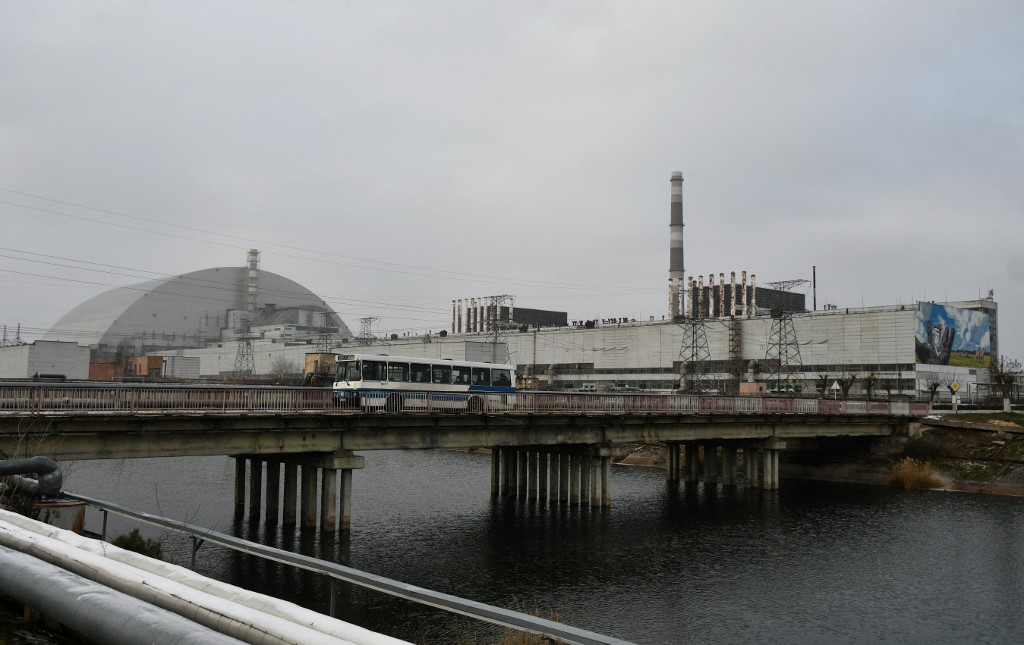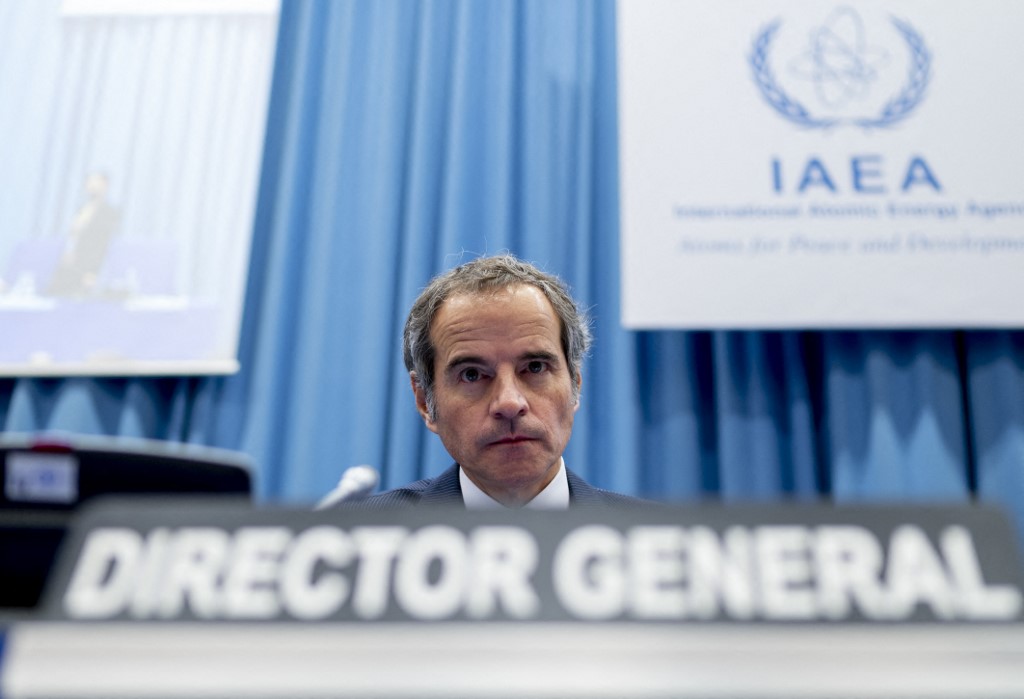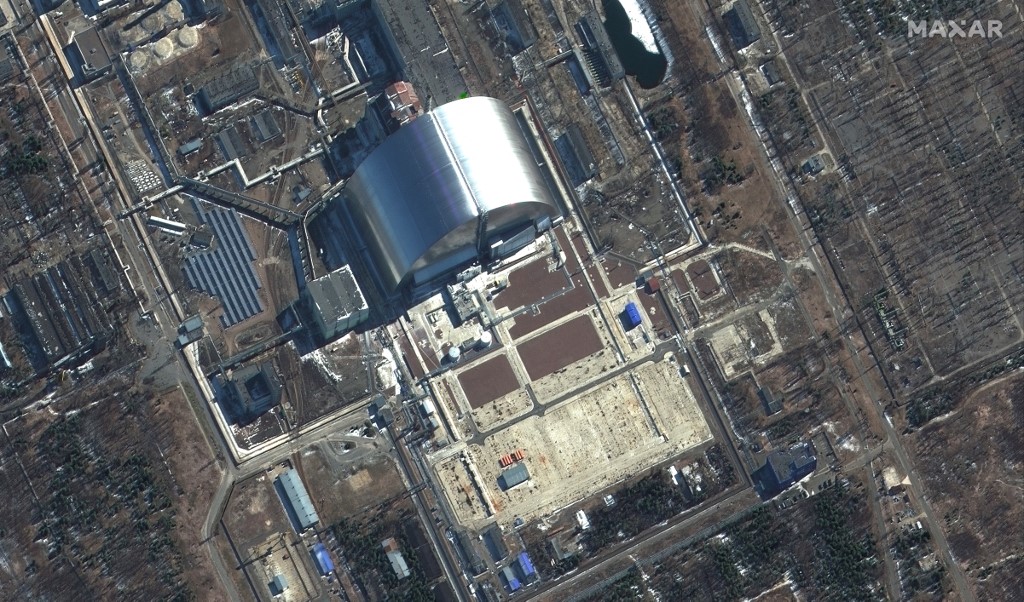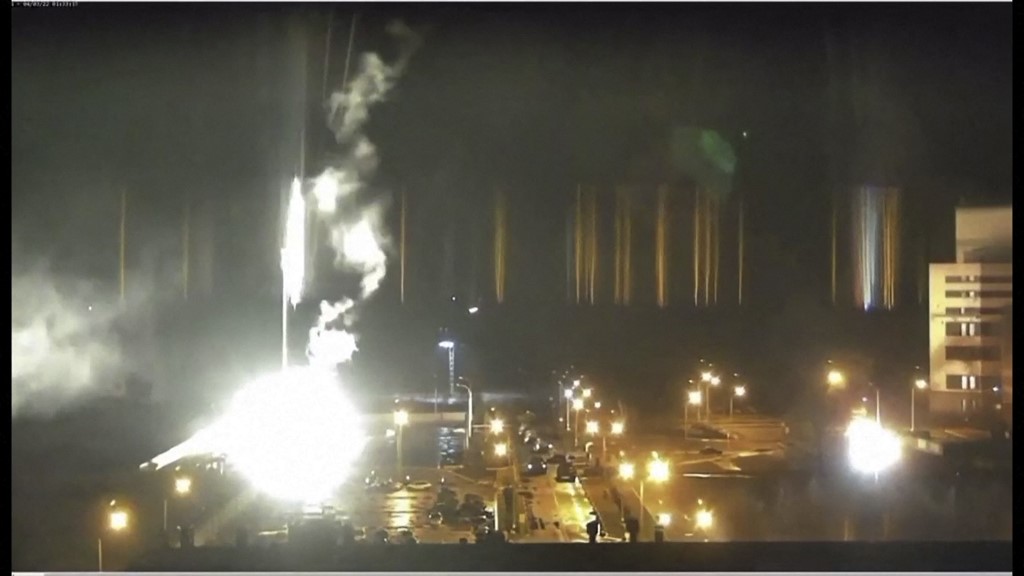
VIENNA, Austria (AFP) – Moscow and Kyiv are “ready to work” with the UN atomic watchdog to ensure nuclear safety, its head said Thursday, as Ukraine has lost “all communications” with the Chernobyl nuclear power plant.
The International Atomic Energy Agency (IAEA) has expressed concern about nuclear safety and security after Russian forces took over Europe’s largest power plant in Ukraine, as well as Chernobyl, the site of the world’s worst nuclear accident.
Seeking to address this, IAEA director general Rafael Grossi met Ukraine’s Foreign Minister Dmytro Kuleba and Russia’s Foreign Minister Sergei Lavrov in separate meetings in Antalya in Turkey.

“We had good meetings, not easy ones, but serious meetings,” he told reporters after returning to Vienna, where the IAEA is based.
“Both sides agree… that something needs to be done. They are both ready to work and to engage with the IAEA.”
He said he would try to “have something more concrete” in the next few days.
“It’s a very dire situation and we need to move fast,” he said.
In a statement later Thursday, the IAEA said Ukraine informed it that it had lost “all communications” with the Chernobyl nuclear power plant, a day after power was cut.

The agency has so far been unable to confirm reports that power has been restored, it said, because even communication via email had stopped.
The IAEA earlier said it has also lost data transmission from both Chernobyl and the Zaporizhzhia atomic plant, Europe’s largest.
It was also not possible at the moment to bring necessary spare parts, equipment or specialised personnel to Zaporizhzhia to carry out planned repairs, the IAEA said Thursday.
Russian forces shelled and captured the Zaporizhzhia plant on March 4, causing a fire that raised alarm in Europe about a possible nuclear catastrophe.

Earlier, on February 24, they already seized the defunct Chernobyl plant, the site of the 1986 disaster that killed hundreds and spread radioactive contamination west across Europe.
The IAEA has repeatedly voiced concern for staff working under Russian guard at the site that houses decommissioned reactors as well as radioactive waste facilities.
More than 2,000 staff still work at the plant as it requires constant management to prevent another nuclear disaster.
Ukraine has four active nuclear power plants, providing about half the country’s electricity, as well as stores of nuclear waste such as the one at Chernobyl.
© Agence France-Presse







